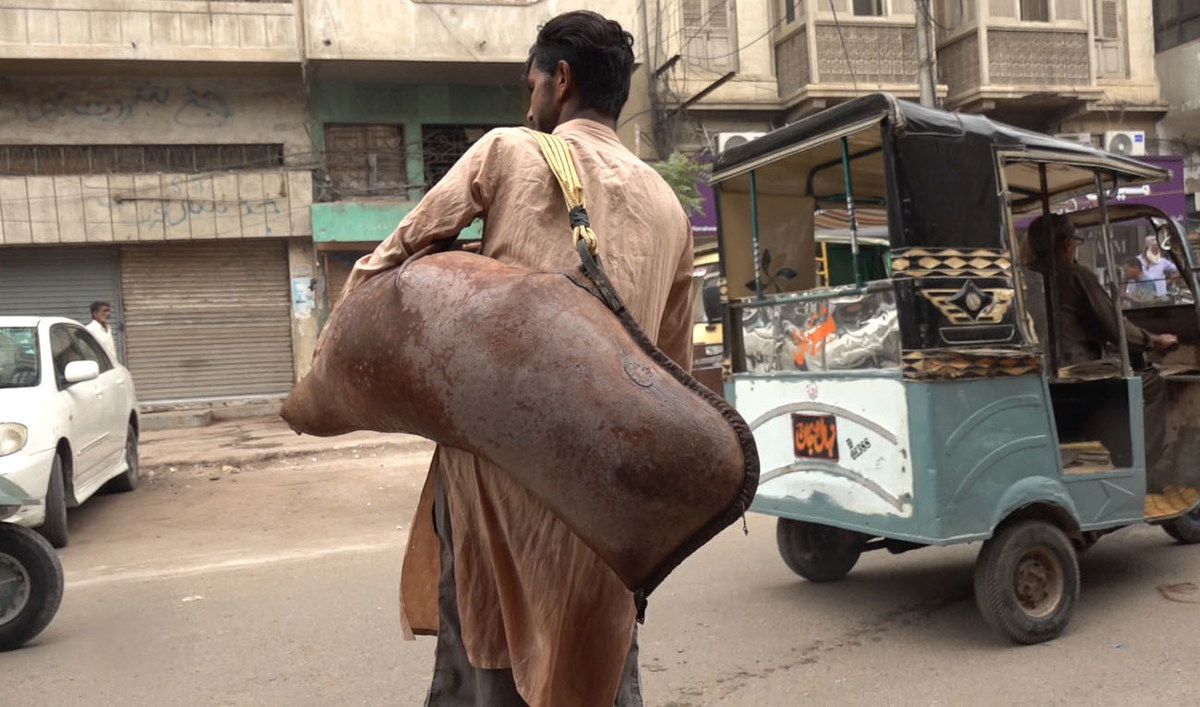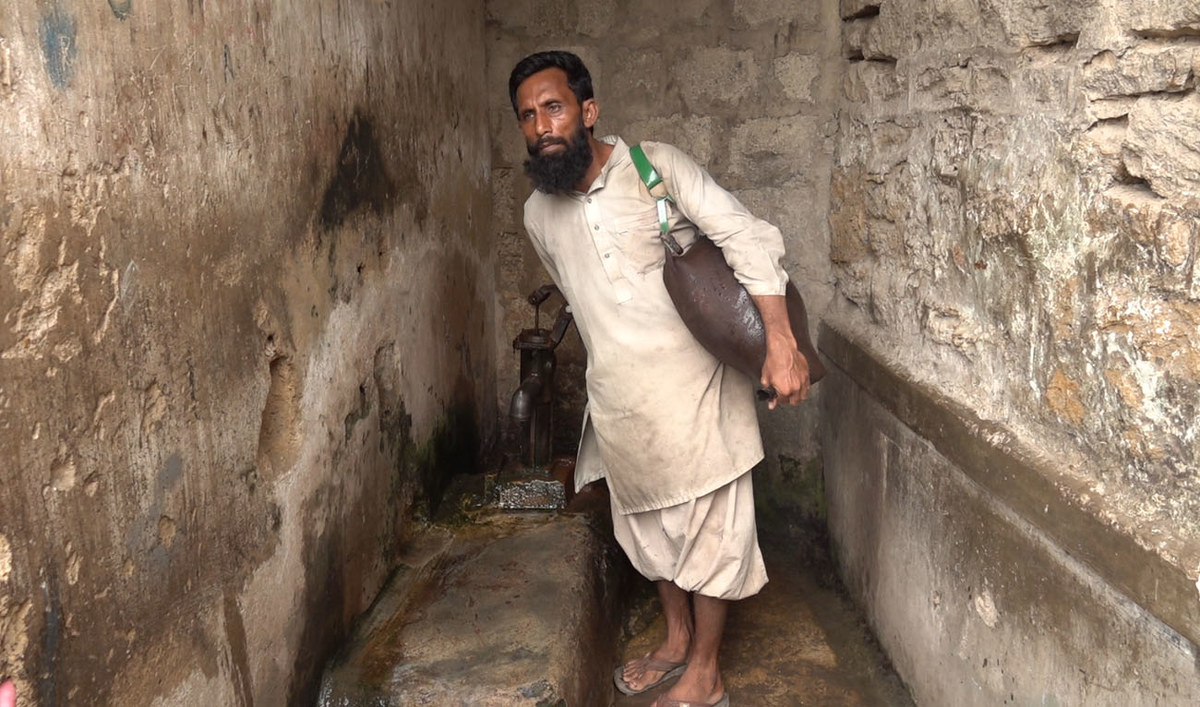KARACHI: As the sun rose over the Pakistani port city of Karachi earlier this week, Muhammad Dildar pumped water into a large goatskin bag before carrying it through narrow streets to deliver to a family in the Bohrapir neighborhood.
Mashqis, or water bearers, like Dildar have existed in South Asia for centuries, providing water to travelers and warriors during battles in ancient times.
But the age-old profession is today both under threat — as water companies and tankers increasingly serve Karachi residents — but also thriving in a city with fragile infrastructure, struggling with piped supply.
Karachi needs about 1,200 million gallons per day of water to meet the demand of its estimated population of 20 million people. But officials say its two main water sources only provide the city with about 580 million gallons per day. Some of the water is lost due to dilapidated infrastructure and water theft, while experts say climate change and dams built upstream by India also reduce water supplies.
According to urban management expert Dr. Noman Ahmed, roughly half of Karachi’s population lacks access to piped water supplied by the Karachi Water and Sewerage Corporation, forcing them to seek alternative sources. As a result, water tankers and neighborhood filtration plants are thriving. So too are water bearers.
“The water problem in Karachi is enormous, and once [piped] water reaches households, our livelihoods may cease to exist,” Dildar, in his forties, told Arab News.

The still image taken from a video recorded on July 31, 2023, shows a traditional water bearer carrying a water filled goatskin bag in Karachi, Pakistan. (AN Photo)
“Right now, usually [piped] water doesn’t reach homes, so people hire one or two mashqis to bring water early in the morning.”
The tradition of water bearing runs deep in the veins of Karachi. Though there are no official figures for the number of mashqis in the city, those associated with the trade put the figure in the hundreds. There were at least 50 mashqis at each of the three locations Arab News visited to conduct interviews.
Ghulam Musfata, one of the few mashq manufacturers in the city, also reported a rising demand for the goatskin bags.
“Sales are higher than they were previously as the demand for water [from mashqis] has increased due to the current [water] situation in Karachi,” he said.
And so, water bearers like Dildar carry on with a profession inherited from their parents.
“My great grandfather used to do it, my grandfather did it, my father did it, and then I joined,” Dildar, who started carrying water as a 12-year-old boy to assist his aging father, said.
“This marks our fifth generation continuing this tradition. My son has already become involved in this work.”

The still image taken from a video recorded on July 31, 2023, shows Muhammad Dildar, a traditional water bearer carrying a water filled goatskin bag in Karachi, Pakistan. (AN Photo)
Mashqis earn around 1,000 rupees ($3.48) in daily wages, carrying up to 50kg of water per mashq, which requires both strength and skill.
“To lift it, a little training is required, it cannot be lifted randomly. Carrying this 50kg weight on [just] one shoulder weakens it,” Dildar said.
But even as the job’s physical demands can significantly shorten a worker’s lifespan, the returns are low.
“Walking back and forth all day, carrying this heavy load, demands a lot of hard work, yet the income we receive for it is very meager,” he said.
Due to the arduous nature of the job and the low wages, Shaukat Ali, a water bearer at the Ranchore Line area, had hoped his children would pursue new career paths.
“But due to compulsion and poverty, we are forced to make them join this work. Our elders used to do it, and so we had no choice but to join as well,” said Ali, who like most mashqis works from sunrise to sunset or until his body can no longer physically bear the strain of carrying so much water.
“It leaves one exhausted and disrupts sleep,” he said.
Though Ali is just in his forties, he looked much older than his years, due to which many people in the neighborhood called him chacha, or uncle, he said with a chuckle.
“I am 43 years old,” he added, as he adjusted his mashq on one shoulder and prepared to carry it up a six-story building.
“But you can see how quickly a person involved in this job ages.”














